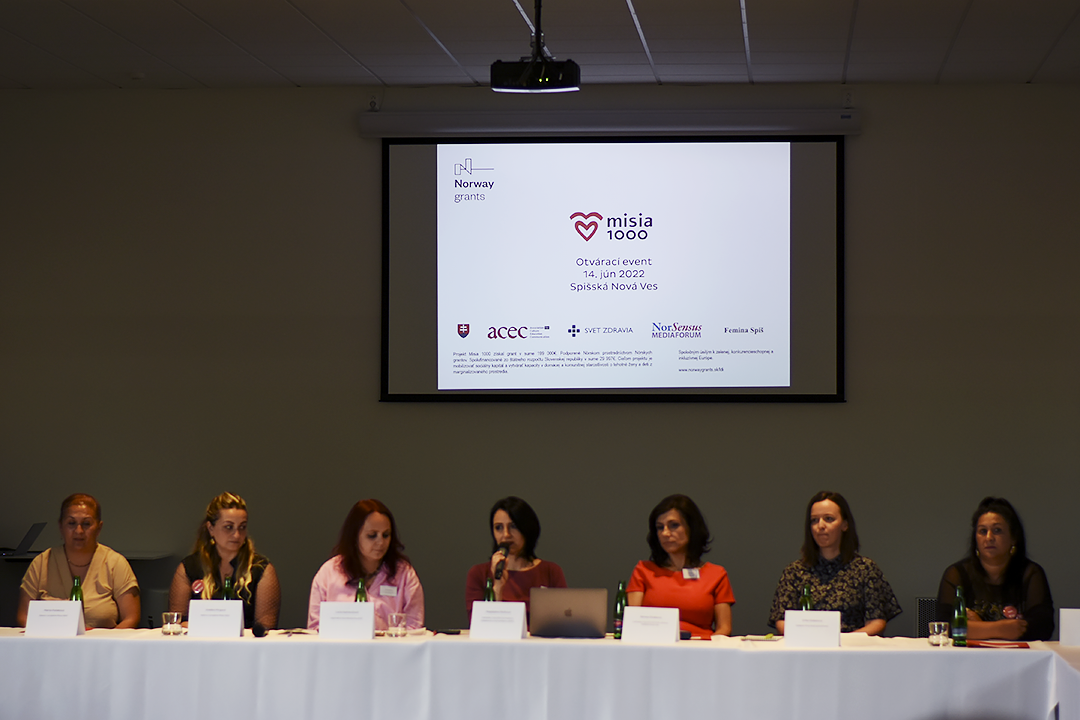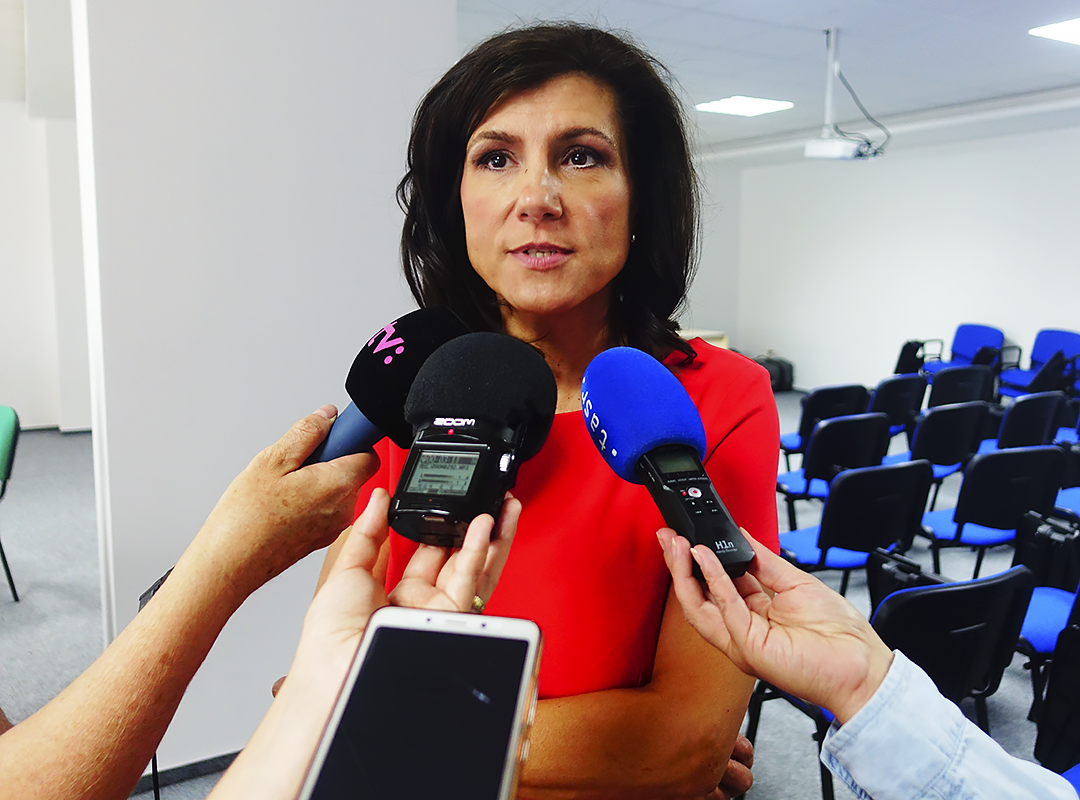A project called Mission 1000 is realized in the area of Spišská Nová Ves in the Slovak Republic. Eleven specialised Roma Health Mediators, the so-called midwives, help mothers from marginalised communities during their pregnancy and after the childbirth.
The project was initiated by the Association for Culture, Education and Communication (ACEC), in order to highlight the crucial first 1,000 days from conception to age of 2 years.
“Through midwives, specialized health mediators, we are building community capacity in the pregnancy care during their stay in the maternity ward and after their discharge. In this way, we create communication bridges and develop relationships among communities,” explained the ACEC director, Magdaléna Rothová. “In Slovakia, antenatal preparation, necessary postnatal care, and activities to develop parenting skills are almost inaccessible for parents who do not have enough financial resources,” she added.
The midwives operate in several villages in the Spiš Region. They realize activities with and for girls, pregnant women and stay-at-home mothers directly in the settlements, but also directly in hospitals. As part of their activities, they cooperate with local government, community centres, other auxiliary professions, and health care providers.
In Spišská Nová Ves, the midwives work at the Svet zdravia Hospital in the gynaecology and obstetrics, and the paediatric wards.
“We very much welcome the fact that they speak Romani and thus create a sense of security for these mothers and children. For example, if the babies in the paediatric ward do not have an accompanying person, they often see these midwives as their saviours, because they speak their language. In the maternity ward, they help educate mothers in lactation counselling,” Renáta Šuláková, the hospital’s director, appreciated the presence of midwives in the hospital. “It is the first thousand days from conception that are very important for the life of the baby. It lays the foundation for the immune system, metabolism and brain development. While these colleagues primarily help moms from poor communities, I believe their help will be in demand in the rooms of all moms in our maternity ward. They raise awareness and break down barriers between staff and patients,” she added.
Three years ago, ACEC launched a pilot project, Mission 1000, through volunteer women, thanks in part to the support of the Penta Foundation. With financial support from Norwegian grants and the state budget, the first eleven midwives have now been recruited.
One of the midwives is Marta Polláková from Spišská Nová Ves, who worked as a kindergarten teacher for 20 years. She takes the position of a midwife as her mission and her main goal is to help mothers. “I feel very good in this job, it fulfils me, although working with people is demanding, and if you work in a settlement, it is even more demanding. But it makes me even more happy when I see that the mothers want to work with me and that the children are happy when I come,” she concluded.
“We offer them help with the baby’s development while it’s in the belly, we take care of them before the birth and also after the birth. We teach them how to change the nappies, bathe or massage the baby and we also make sure the mother’s health is at its best,” explained midwife Anežka Mirgová.
On the occasion of the presentation of the activities of the Mission 1000 project, nearly fifty participants met in Spišská Nová Ves, attracted by the topic of early childhood care and effective approaches to early childhood care in the conditions of marginalized communities in Slovakia. The event also included a presentation of the planned First Years First Priority campaign.
















